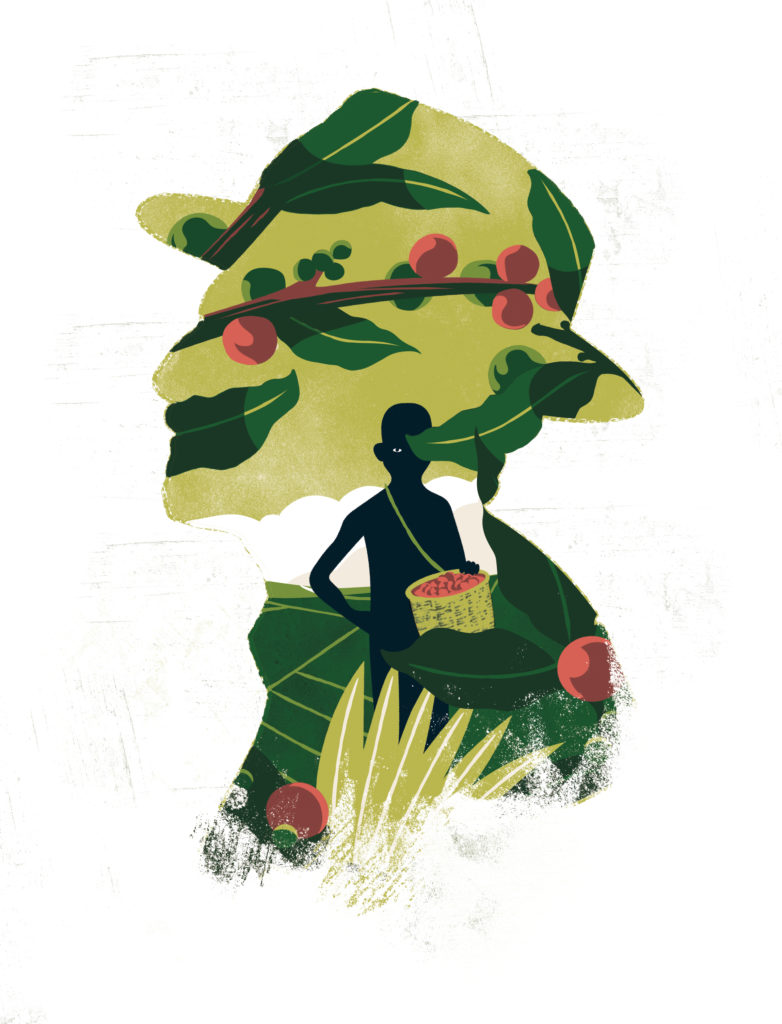
Illustrated by Xinjia Liu
According to the National Coffee Association from of the USA, it takes 10 steps from Seed to Cup. Before you get to an origin country and see the landscape there with your own eyes, it may be difficult to imagine how much hard work is contained in every coffee bean. Each step takes so much effort from coffee humans from producing nations to coffee shops. It’s a story about coffee humans and their endless love of coffee.
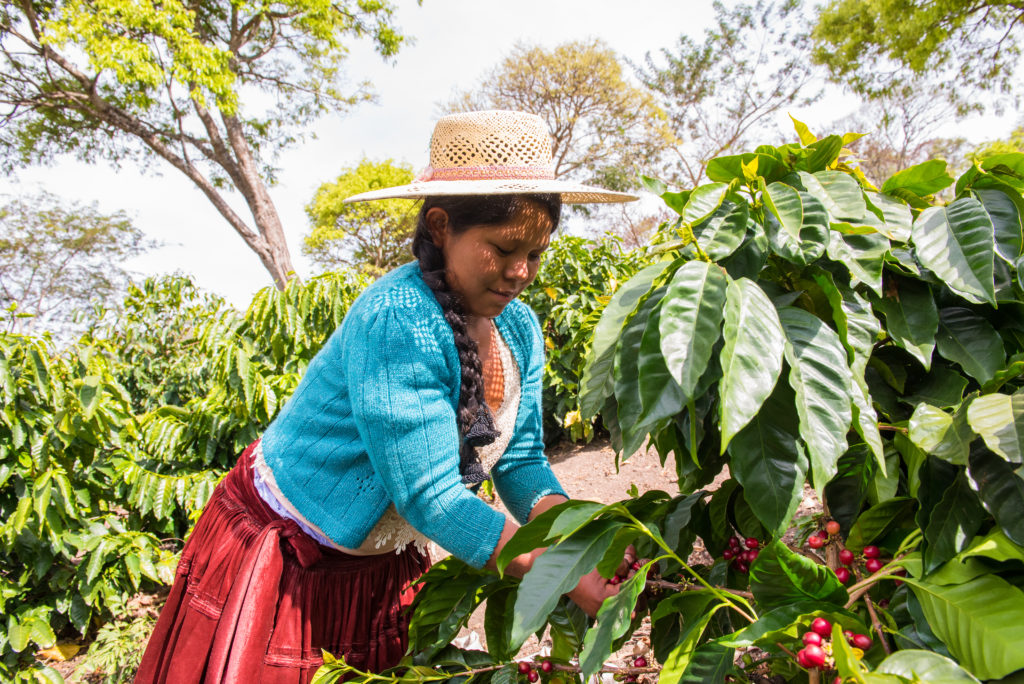
Photo: Agricafe
Somewhere over the Coffee Land
Devoted to coffee production, processing, roasting, and export of Bolivian coffee for over 33 years, Agricafe is best known for its innovation and quality. “Los Rodriguez family believes that sustainability must be the core principle of every facet in our organization,” stressed Daniela Rodriguez Eulert, who is now in charge of the Commercial Department & Quality Control of Agricafe Bolivia. “We thrive by constantly nurturing several fundamental pillars – Quality, Productivity, Innovation, and Traceability – and ensuring these pillars are built on a model of sustainability.”
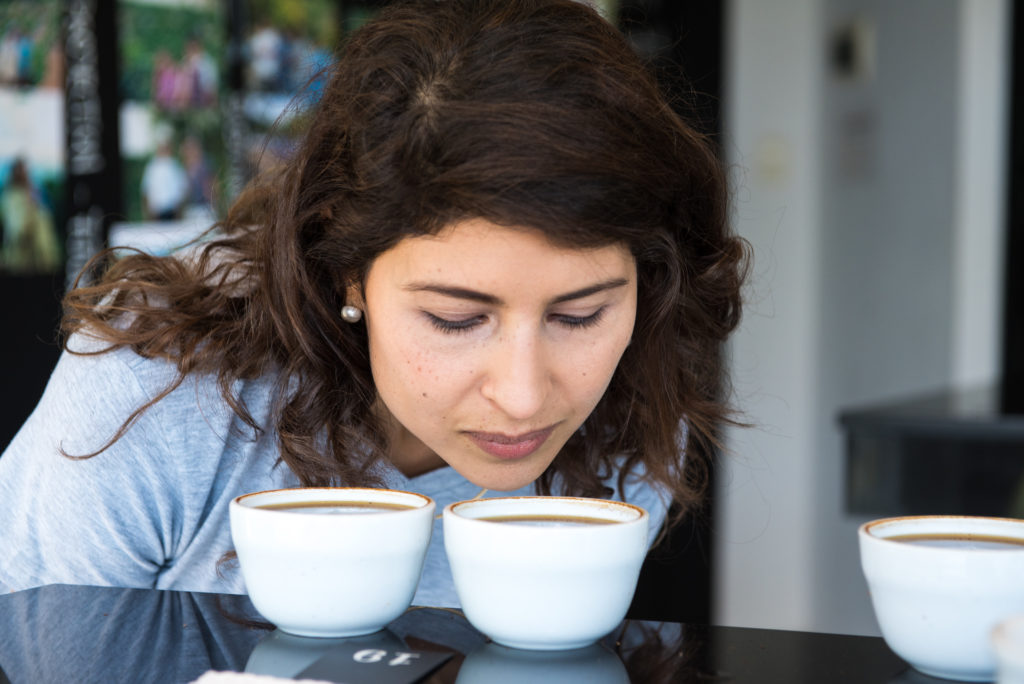
Daniela Rodriguez Eulert (Photo: Agricafe)
Agricafe is a family business, which both produces coffee on its own farms and sources high quality micro lots from small producers of the Yungas region. “I have been in coffee all my life,” said Rodriguez. Her father Pedro Rodriguez started the company the year when she was born. Now, Fincas Los Rodriguez consist of 12 farms, adding up to 140 hectares. “Coffee is one of my passions and has become a way of life for my family and myself. Every day, we constantly think about innovating the coffee industry in Bolivia and improving the quality of our coffees year by year.”
The fact that coffee production in Bolivia keeps dropping makes Agricafe step up to make a difference. “In order to keep coffee cultivation up, in 2012, Agricafe acquired land and that was when we decided to produce,” shared Rodriguez, “From then on, each year new acquisitions joined Agricafe’s farms in the locations of Caranavi and Samaipata.” Caranavi and Samaipata regions are 1,000km away from each other, featuring different weather conditions and ethic cultures, which also poses challenges for Agricafe.
In 2013, Agricafe started a new initiative called “Sol de La Mañana (Morning Sun)” to share coffee knowledge between local producers, which was the first of its kind in Bolivia. “Until 2013, the average output of a small producer was two to four bags (of green coffee) per harvest. To reach a sustainable production, they should be producing 25 bags per harvest,” explained Rodriguez.
With all efforts, incredible impacts have been achieved through the initiative as there are around 50 producers teaming up with Agricafe for a better coffee cultivation as well as a better life quality. “My Brother Pedro Pablo is running the pro- gram, ”she mentioned.
“For our family, coffee is a real passion,” said Rodriguez. The passion has motivated Agricafe to continue and strengthen its business in those regions in history with few opportunities to make a profit from coffee business. “We have found the possibility to generate not only business opportunities in these regions, impacting the families involved, but also a sense for socio-environmental responsibility with a long-term impact in our country.”
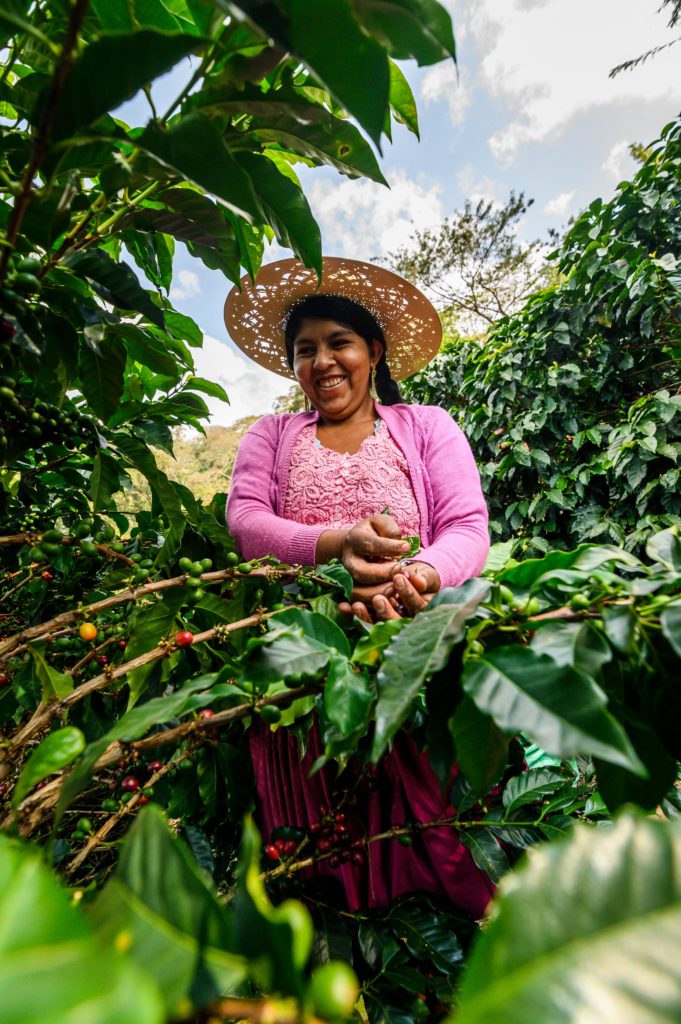
Photo: Agricafe
In order to realize its goal, Agricafe has also developed a series of programs to make coffee business a sustainable profitability. For example, its Reforestation Program aims to plant around 300 to 400 native trees of the regions in the next two years, encouraging everyone involved with the company to do the same. Tourism Program provides coffee tours & work- shops for those who are interested in coffee farms and specialty coffee. “We aim to achieve some results such as exporting 90% of our production as specialty coffee, yet retaining 10% for the local market,” she shared, “Selling roasted coffee beans in our Coffee Lab & Store as well as coffee sub-products like husk, flower, honey of our production to the local market allows us to be sustainable and profitable.” Training is also provided to coffee shops, hotels and restaurants as an aim to raise awareness of quality coffee and promote a better coffee culture in Bolivia.
By working with coffee specialists, Agricafe manages to set standards in the production process and on its farms. “Every step of the process we take care of the bean carefully. The picking and maturity of the bean/cherry is fundamental for the quality of the coffee as well as a control process,” Rodriguez stressed, “Specialty coffee is about details.”

Photo: Agricafe
Q&A
What’s the most innovative thing that you have done on the farm?
Developing new varieties in Bolivia. We have a varietal garden called “Los Rodriguez Garden”. Fifty varieties have been planted in order to observe their development in the regions and further, improve the coffee supply in the world.
What processing method do you like best? Why?
When I choose a coffee to drink, I first look at the variety and the origin/terroir. But I would say I like washed coffees. The cleanness and flavors of the variety and terroir can be better appreciated.
What is your favorite beverage apart from coffee?
WINE! The sensorial world is very exciting for me and it is amazing to discover the flavors and aromas both, coffee and wine have to offer.
About Agricafe
A family run business which harnesses close relationships with producers to create exceptional coffees.

Illustrated by Xinjia Liu
Work Together in Sustainability
If you have been familiar with specialty coffee, you possibly have heard about Cup of Excellence (CoE), the most prestigious competition and auction for high quality coffees by the not-for-profit organization Alliance for Coffee Excellence (ACE).
Having worked in coffee and tea since 1985 with experiences working at renowned Stumptown Coffee Roasters, illy Caffe in Seattle and Allegro Coffee/Whole Foods Market, Darrin Daniel has been ACE’s Executive Director since 2017. As an experienced coffee buyer, trainer, and technician, he has witnessed great changes taking places in the past decades. “The retail space has elevated globally, the sourcing of higher quality coffees has elevated and the overall commitment to quality control has elevated. What has not elevated is the premiums to producers,” he pointed out.

Darrin Daniel (Photo: CTI)
For Daniel, the most memorable and gratifying experience was “an invitation by President Bill Clinton to travel to Haiti with Todd Carmichael (from La Colombe) to explore a Coffee Academy that the Clinton Foundation had started with La Colombe to help assist producers in improvements and renovation and nursery development”. This year marks the 20th anniversary of CoE’s establishment, which has attracted many countries to participate in its initiative ever since 1999. “The biggest change is the number of new countries that are very interested in becoming part of our program,” Daniel shared. “This has manifested in new development opportunities for us to expand our program into countries such as Ethiopia for 2020 and a roll out of a pilot program for Indonesia, which we hope to build into 2020.” Meanwhile, CoE has seen a great expansion of its membership in China. “This has been the largest increase in membership by any single country since I took on the Director role in 2017,” Daniel said.

Photo: CoE
Although facing a challenge to attract members from North America and Europe, Daniel sees hope in the future, “We would like to encourage more buying groups so that smaller roasters have a shot at buying smaller portions from a lot versus trying to buy an entire lot and not being able to sell through some for these higher priced lots.”
Daniel thinks of sustainability as a goal as well as a challenge for coffee humans in the community. “The coffee sector needs to set standards as an industry as to what sustainability is. I see that many organizations spend more time defining it than actually practicing it,” he said.
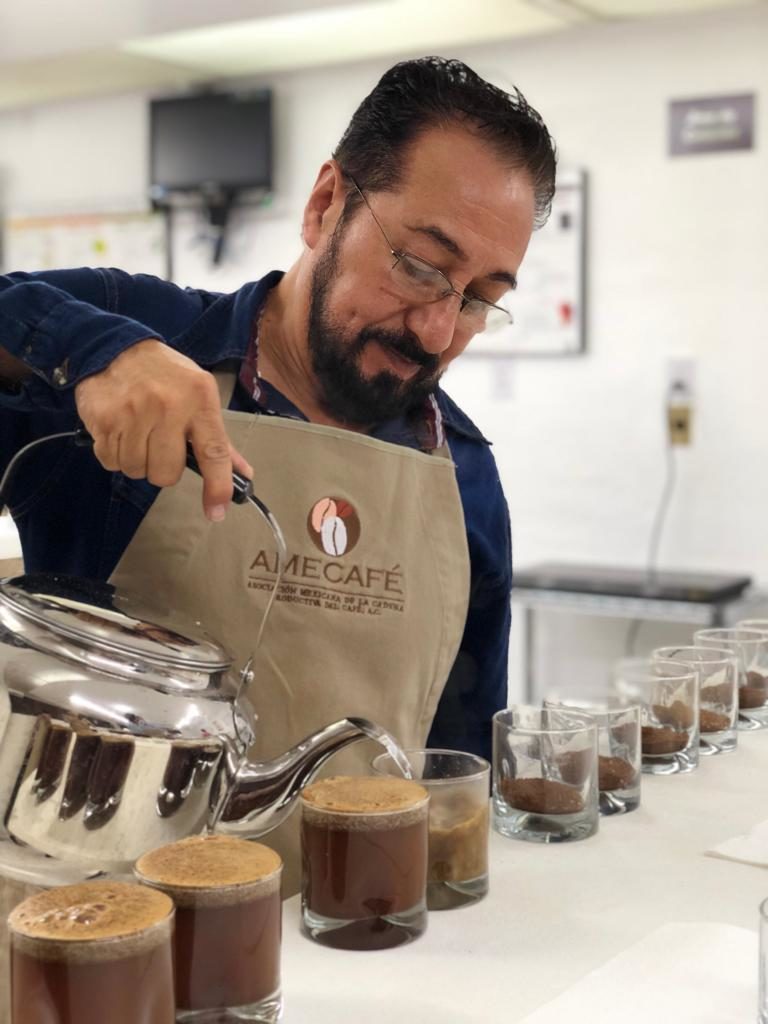
Photo: CoE
There are many initiatives and programs out there. However, the solution to sustainability lies in working together, regardless of small organizations or big chains, advised Daniel. “Since we are a smaller organization, I often find myself wanting to run harder and faster than we have the resources to do so. I have come from a corporate background and I often have to check myself and realize that some goals just need to be planned further out than I would like to see them completed.”
With a commitment to continue to be a bridge towards a more enlightened and sophisticated model, CoE has “given thousands of coffee producers leverage in their ability to achieve higher prices and higher quality for their efforts”, according to Daniel.
Working toward a CoE in April 2020 for Ethiopia, the organization is welcoming more origin countries to come on board.

Photo: CoE
Q&A
Have you tried Chinese Yunnan coffee yet? How do you like it?
Yes, I have recently on my last trip to Shanghai tasted some very good outturns of naturals that I thought were good.
What beverage do you like apart from coffee?
I love tea, Oolongs especially. I enjoy wine.
What origin coffee do you like the most at the moment?
I love Ethiopia and Kenya. I also have been enjoying Ecuador.
About CoE
CoE is the most prestigious competition to identify the best quality coffees and the winning coffees to be sold in internet auctions. Its first competition was in 1999, and now competitions are held annually in different countries.
www.allianceforcoffeeexcellence.org
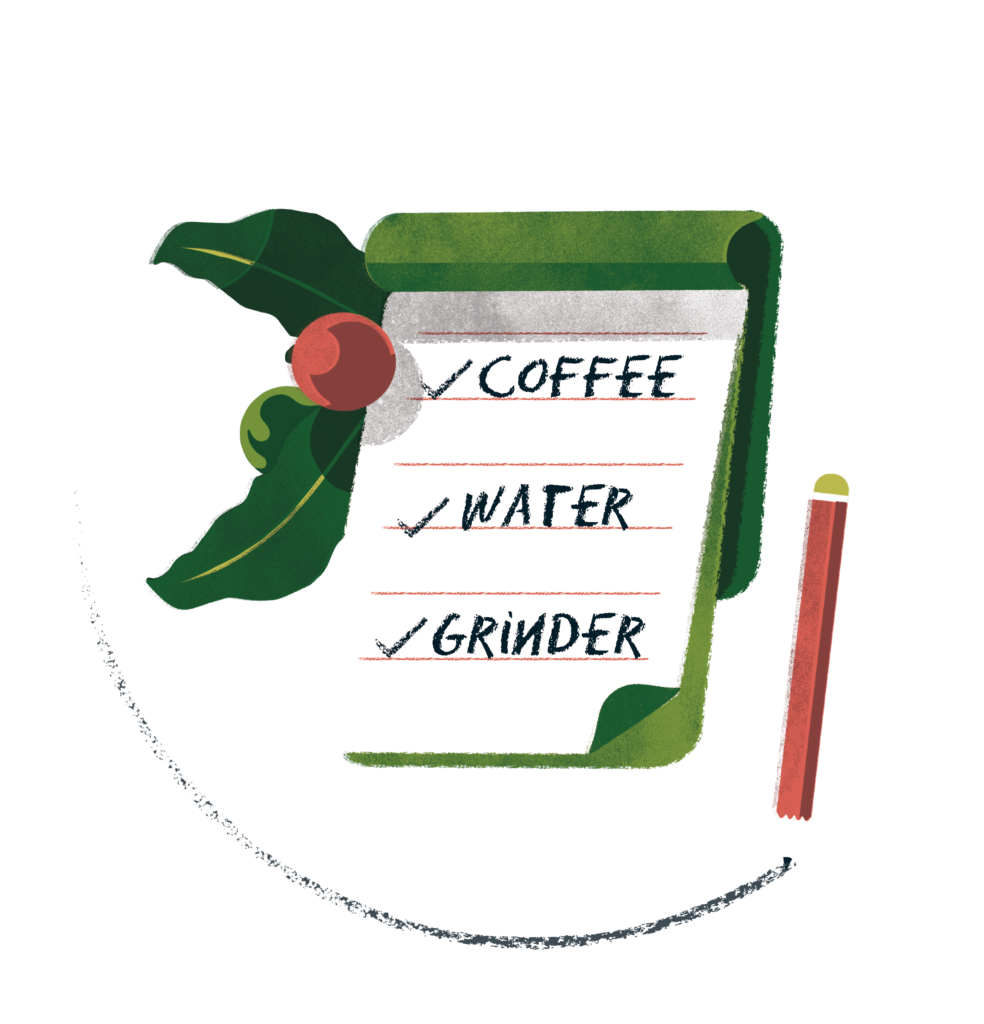
Illustrated by Xinjia Liu
An “Invisible” Bridge that Matters
“A good coffee purchase starts and ends with communication,” said Chris Kornman, educator and quality specialist for Royal Coffee importers in Oakland, California. After 15 years in the business, he is still fascinated about coffee. “It still manages to surprise, humble, and educate me almost every day. That’s why I keep going back (to origins),” Kornman said. “It’s also delicious.”
In his opinion, buying green coffee is not “like a trip to the grocery store.” Communication plays a critical role in this. “The more clear you can make your expectations, the more likely they are to be met.”
Starting his coffee journey from college as a barista, Kornman regards traveling to the origin as the most glamorous part of coffee buying. “Getting to know the details about the coffee-producing country can help in understanding schedules and quality and many other elements important for purchasing coffee,” he explained. “It also allows you to spend time face-to-face with the producer and to taste coffee with them, so you can calibrate on quality expectations and understand each other as humans beyond the transactional details.” To Kornman, humanizing coffee production is one of the intangible elements that makes coffee better across the supply chain. “It improves prices, quality, and practices for everyone involved,” he concluded.
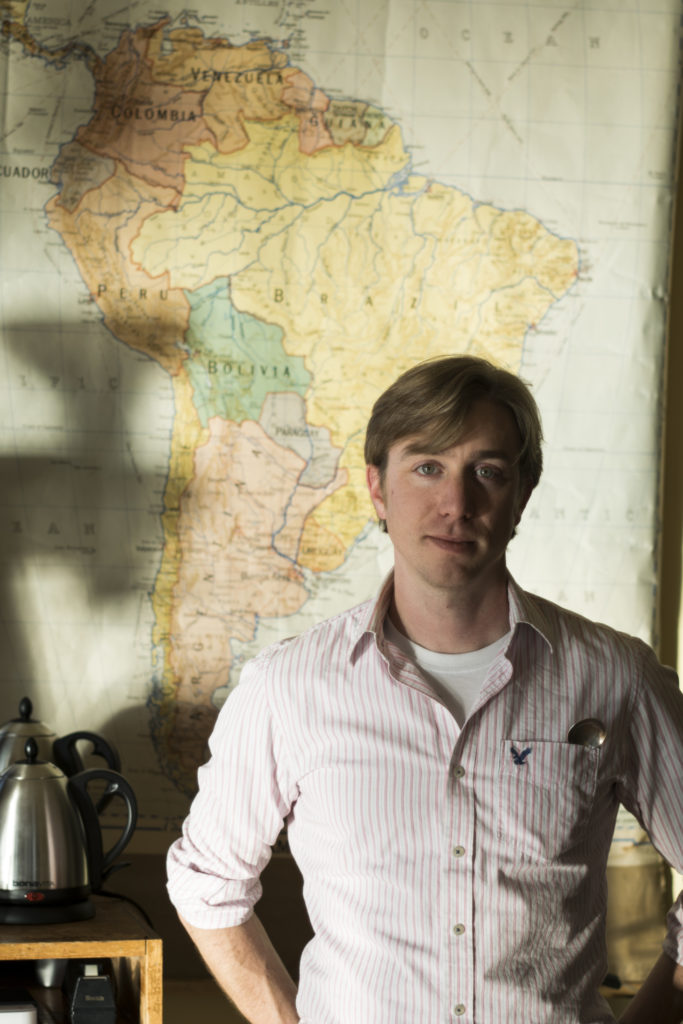
Chris Kornman
The connection between the growers and producers to the roasters, brewers, and ultimately consumers is what we talk about in Seed to Cup. In Kornman’s eye, the green bean buyer, or bean seeker, is the person who makes such a connection. In the past decades, the bean seeker role has sent Kornman to dozens of micro-regions in Brazil, Burundi, Colombia, Ethiopia, Guatemala, Kenya, Rwanda, Tanzania, and Zambia.
During these trips, he always found something new to learn. “It took me a very long time over multiple seasons to understand the process of pulping, fermenting, washing, and drying,” Kornman revealed. “Returning to the same farm or region over multiple seasons yields interesting nuance to the idea of seasonality and you can observe how the farm and farmer evolve to meet changing weather conditions, production patterns, customer needs, and many other factors.” Apart from the coffee, the human element of coffee is another thing that really matters. “To meet the people involved in the process, to observe the colossal effort it takes to grow coffee on both micro and macro scales, the number of people who work at wet and dry mills, and the immense amount of personal touch involved in the process,” he said. It’s about the respect paid to whoever contribute to the final product that consumers will have.
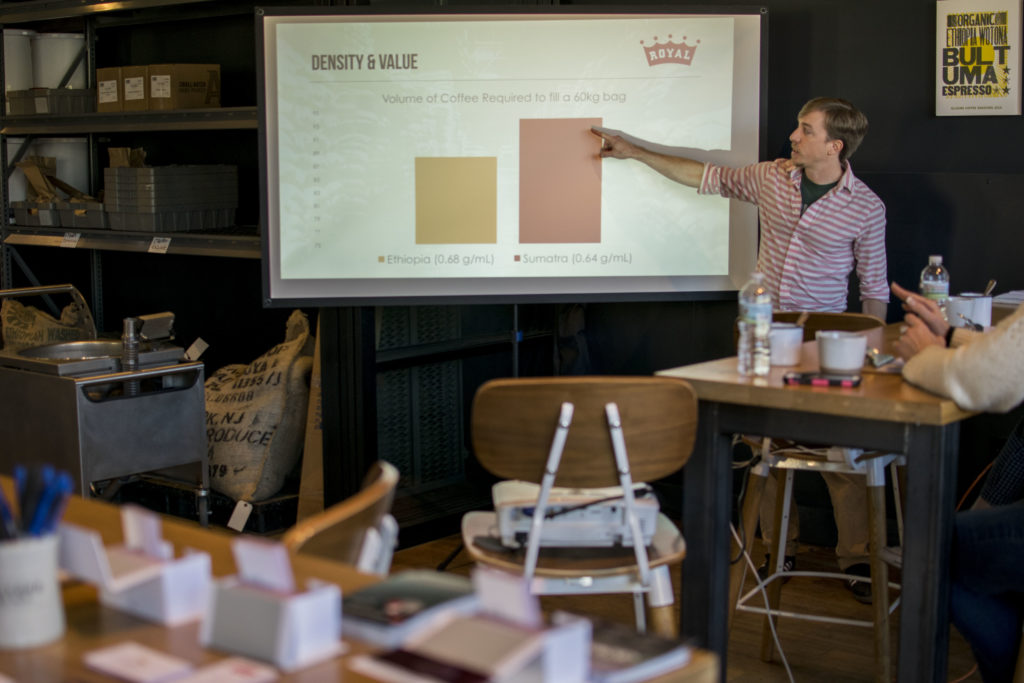
Photo: Evan Gilman
Being the bridge to connect farms with the marketplace, Kornman suggests that coffee buyers should let producer, exporter, importer, and anyone else in the supply chain know what they expect. “Communication will make or break your coffee buying experience,” he advised. “Talk details, ask questions, be clear.”
At origin, especially in Central and South America, the rust epidemic has dramatically altered the landscape, according to Kornman. “Farmers are using new pruning and preventative care methods, some areas have still not recovered, others have uprooted legacy varieties like Caturra and replaced them with resistant hybrids.”
Processing innovation is happening at origin too. “Honey processing was brand new to Central America not so long ago, and in places like Burundi and Rwanda specialty grade naturals are still pretty rare,” he said. “Farmers use sealed tank fermentation, known as anaerobic fermentation or carbonic maceration. We see the intentional introduction of yeasts and bacterium in the fermentation tanks to alter the profile of their coffees.” Such innovations not only add quality but also create new and exciting flavors. According to Kornman, some people at origin now implement climate data-logging on their farms to better prepare for the unknown future and meet the challenges caused by climate change. Meanwhile, he believes that the NY’C Market coffee price crisis is a tragedy that’s going to affect us into the future. The fear may not vanish but it will be too late if we don’t pay enough attention or take any action.
Q&A
Human element: How many people does it take to make a cup of coffee?
I think anything that raises awareness of the human element involved in your cup of coffee is a good thing. The answer to the question is thousands: Farmers, mill workers at washing stations and dry mills, export and import logistic coordinators, shipping handlers, truck drivers, quality analysts, marketing agents, agronomy workers, warehouse workers, day labor for harvesting, sales people, roasters, baristas, educators and trainers, people filling the bags of coffee on a production line, the list goes on. I think I’ve named nearly twenty roles right there, and surely more than one person in each role has affected your cup.
It’s a good first step, educating the consumer about the tremendous amount of labor and humanity involved in coffee. I applaud the sentiment.
How can coffee people work together for a sustainable future?
There are two ways to look at science’s contributions to coffee farmers. The first is short term. Farms need to be profitable, and need technology to be affordable and efficient. Science can (and has) contributed to mechanization of pulping technology, creating more water-efficient eco-pulpers, for example, or contributing productive and delicious resistant varieties like Batian or Castillo.
In the long term, by preserving coffee’s gene banks across the world, by sequencing its DNA, and by studying ongoing projects related to technological development, climate science, and many other topics, the groundwork is laid for coffee to survive with us well into the future.
Illustrated by Xinjia Liu
Understand the Philosophy in Roasting
Gary Au, co-founder of Hong Kong-based Urban Coffee Roasters (UCR), used to be a freelance roaster when he worked as a proprietary trader with a private fund management company in 2014. “I tried to roast coffee and sell them in the pop-up/ weekend markets,” Au shared. “We were invited to collaborate with a pop-up cafe in a hostel and serve coffee for their customers and local neighborhood.” Right, this is how UCR began.
As a coffee roaster, Au believes that coffee roasting is like a bridge connecting producers and baristas. “There is a really close relationship between roaster and barista while the relationship of roaster and producer is even closer,” he explained. “To get the perfect final cup to the customer, the barista has to know what the roaster wants to highlight or understand the roasting philosophy behind it before brewing.”
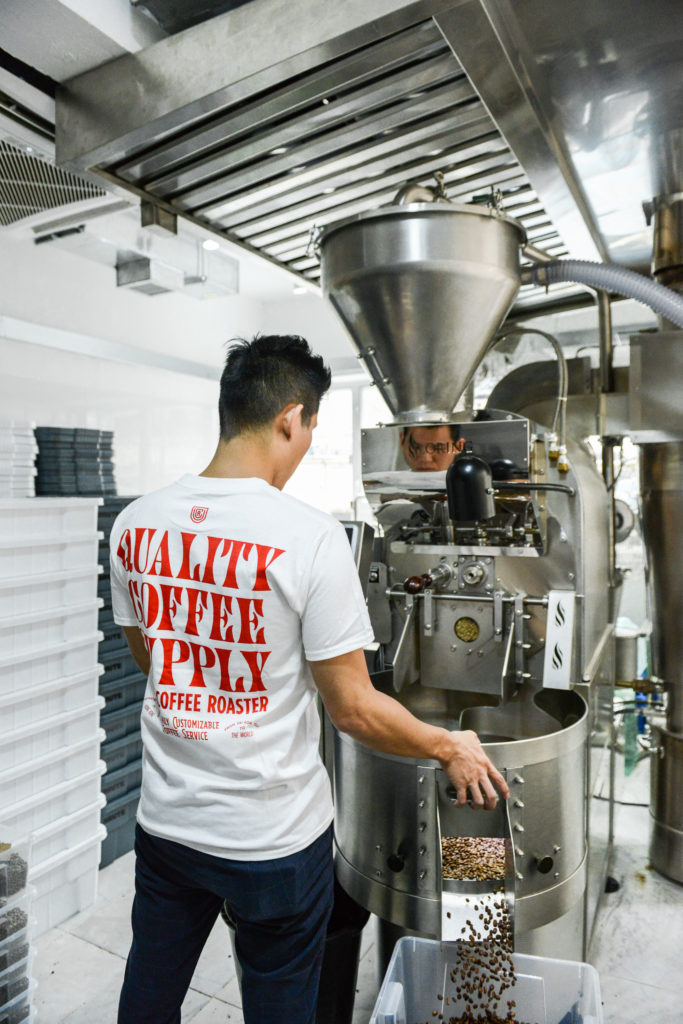
Gary Au
Indeed, when we taste a cup of nice coffee, we should know how much effort and hard work is contained in that cup. “I am not only touched by being so fortunate to participate in the whole process of coffee production, but also deeply impressed by the simple beauty I found from the nature of Ethiopia,” shared Au. Ethiopia is the first origin country that he has stepped on.
Like many coffee roasters, Au loves to visit origin countries. So far, he has visited farms and washing stations in Ethiopia, Kenya, Colombia, and Bolivia. “Not only could we know more about coffee producers’ stories and visions behind the scene, but also it increases the coffee traceability a lot,” Au said. “During the visit to Ethiopia in 2018, I roasted the coffee beans produced in Banko Fufuate, Yirgacheffe. I brought them back to Banko Fufuate washing station and brewed the coffee for the farmers there,” Au continued. “They couldn’t recognize the beans they produced by their hands.” The moment and experience meant a lot to Au.
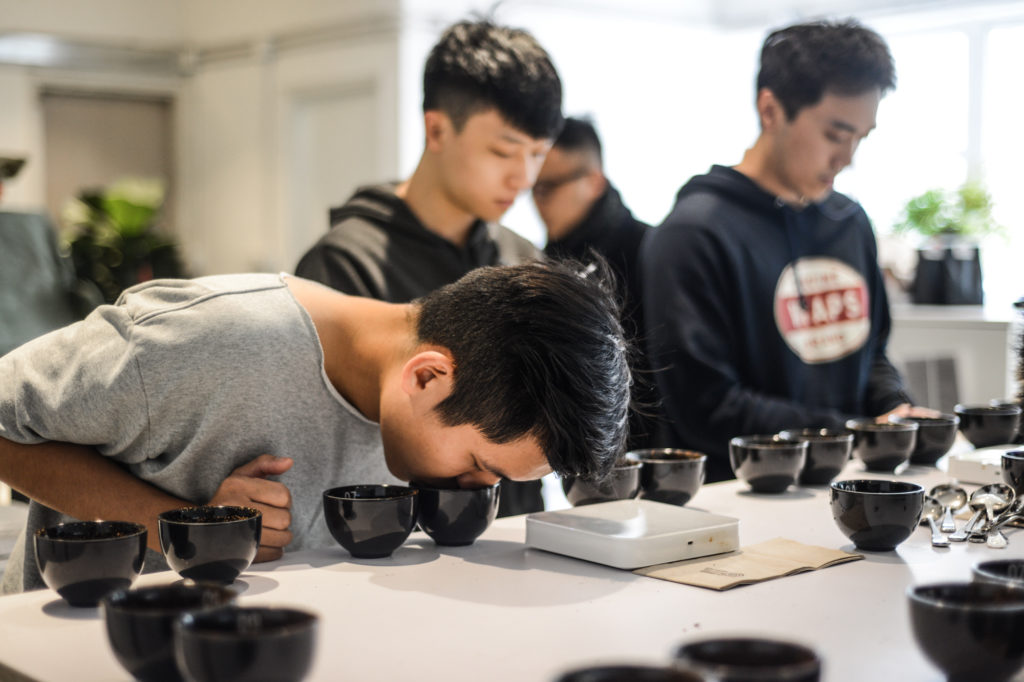
Gary Au
Since 2014, Au has noticed many changes happening at origin. “In my eyes, the farms are as beautiful as always. However, the offices and cupping labs in the origin countries are getting more sophisticated,” he shared. “Many of them are even SCA certificated labs with Q-graders, which means they are gaining more understanding of what we and our customers like.”
Every year, Au and his fellow roasters encounter many new coffee varieties, processing methods, brewing tools, equipment, and many fantastic ideas from a lot of competitions across the globe. “What’s trendy today may become out- dated next year,” he pointed out. “What never changes is that customer service always matters the most.”
About UCR
Urban Coffee Roaster, established in 2014, is an authentic brand from Hong Kong. UCR was co-founded by two coffee enthusiasts with a primary aspiration to supply freshly roasted specialty coffee beans from carefully picked origins.

Illustrated by Xinjia Liu
Responsible Ambassadors in Coffee
Apart from the close relationship with roasters, baristas are the people to complete the final step from Seed to Cup, brewing. The two-time Colombian National Brewers Cup Champion Sebastian Villamizar can’t agree this more. “Initial- ly, I decided to learn about brewing so that I could connect more with the consumer side,” he shared. “I believe there is a big gap of knowledge between origin countries and consumers, and with this experience, I could talk in the same ‘language’ as my clients.”
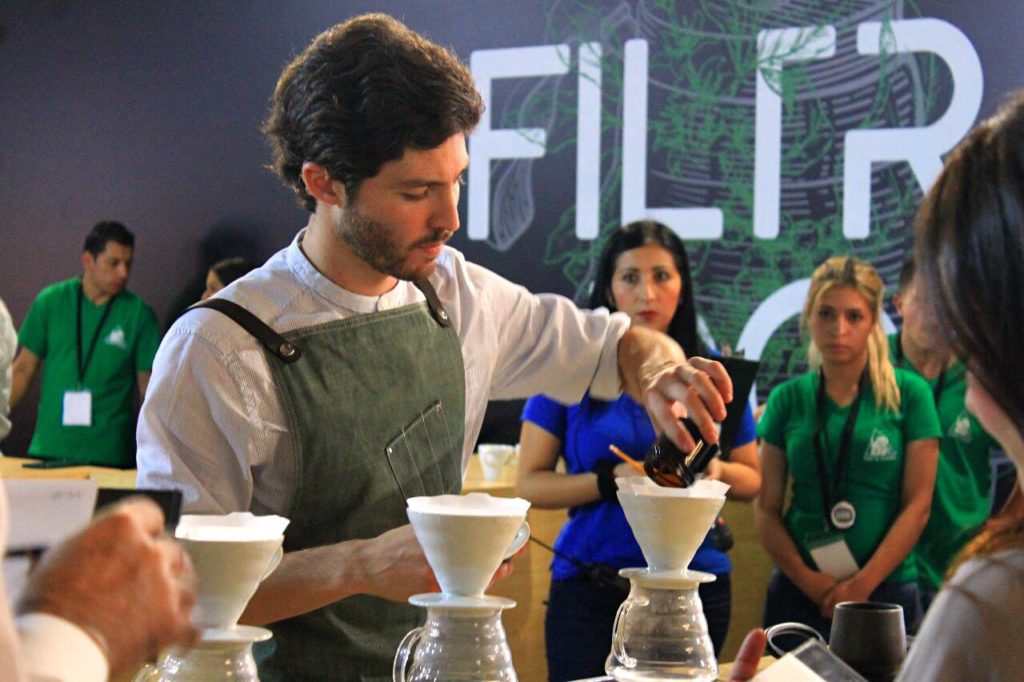
Sebastian Villamizar
Now, Villamizar is the managing partner of Equation Coffee, a Colombian specialty coffee trader, which has operations on both the domestic market and overseas like the USA, Australia, Europe and Asia. With five years’ working experience in coffee, Villamizar and the team aim to improve their offerings and customer services by understanding what happens behind the coffee bar. “I want to use this experience to improve our company and to inspire other producers to learn about the barista world and the specialty coffee industry.”
Villamizar thinks of coffee as a relationship-based industry. “I feel coffee connects people from all around the world and it gives us the possibility to learn about different cultures and back- grounds,” he said. “I love working in the agro-industry where I can connect with the nature and avoid a monotonous daily routine working for my country.”
The barista role is demanding and driven towards information, too. “I think baristas need to be detail-oriented and hungry to learn,” Villamizar stressed. “Coffee is a very complex ‘food’, and this is why the learning process never ends.” In his opinion, any person involved in the coffee industry should always be open-minded and willing to discover new ideas.
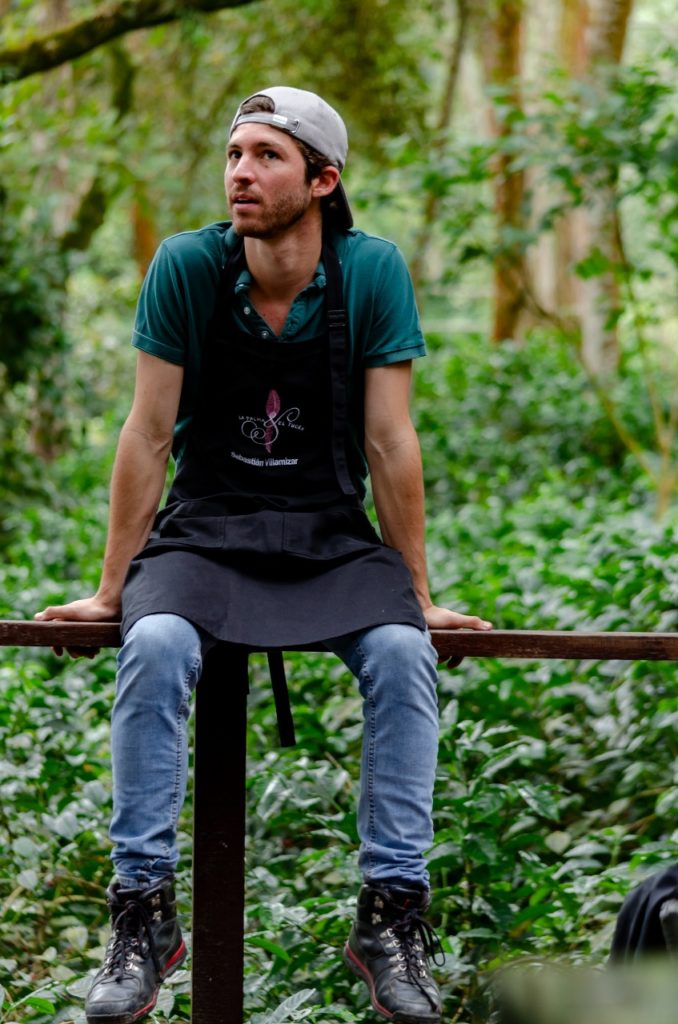
Sebastian Villamizar
From an origin country, Villamizar places great importance on responsibility. “The barista has an enormous responsibility. They are the ones who talk to the final customer, and they are the only ones that can show people about the fascinating world of coffee.” Barista is not only a job but a representative from the industry to share intriguing stories of coffee origins and discover distinctive flavors with customers. “I think coffee people must be up- to-date in order to promote the industry’s best interests,” Villamizar suggested. “We need to talk to customers and educate them in order to explain the true value of coffee.” Regarding coffee people as ambassadors, Villamizar hopes all can take the responsibility and stay together to push the coffee price towards sustainability.
At Equation Coffee, Villamizar and the team are working hard to promote their new project in the Sierra Nevada of Colombia and in Panama now. “This year was the first harvest for both, and we are looking forward to presenting new ideas to consumers,” he shared. “Also, I’m looking forward to working hard at our coffee shop (Libertario) in order to educate the local market and hopefully grow the specialty coffee consumption.”
Step by step, it takes great care, effort and hard work for us to get a decent cup of coffee from coffee humans. Be grateful and cherish every little coffee bean. To whoever loves coffee, stay together to find a sustainable path to the future coffee world!

Illustrated by Xinjia Liu



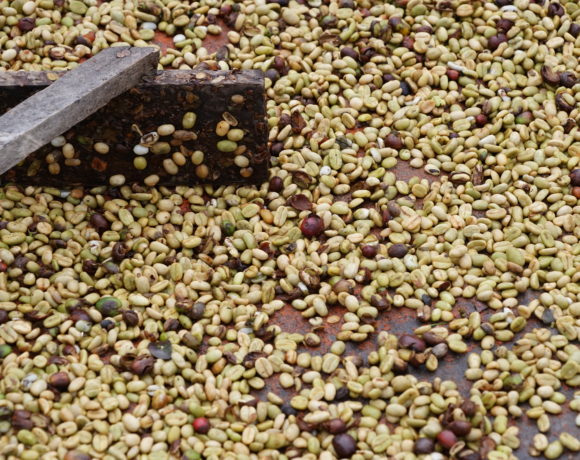
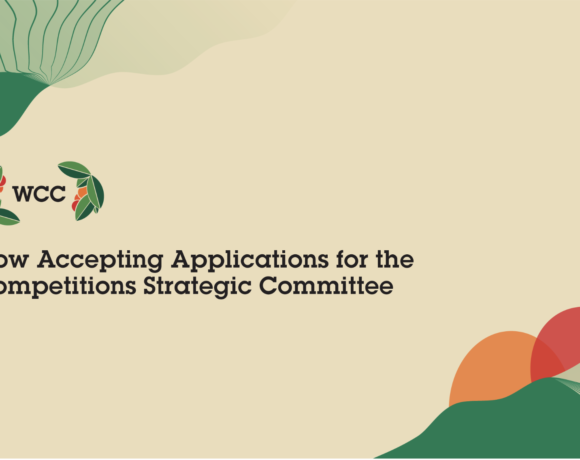
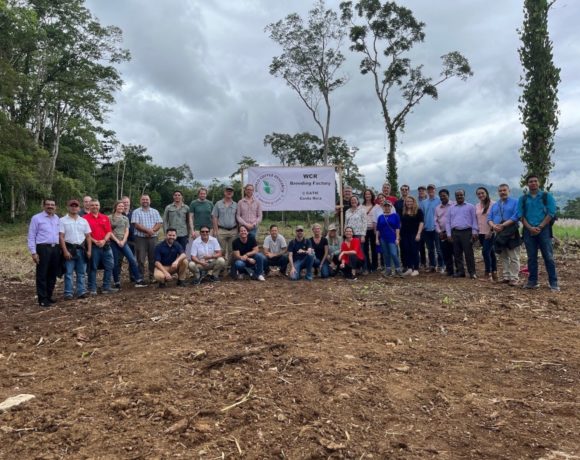






NO COMMENT